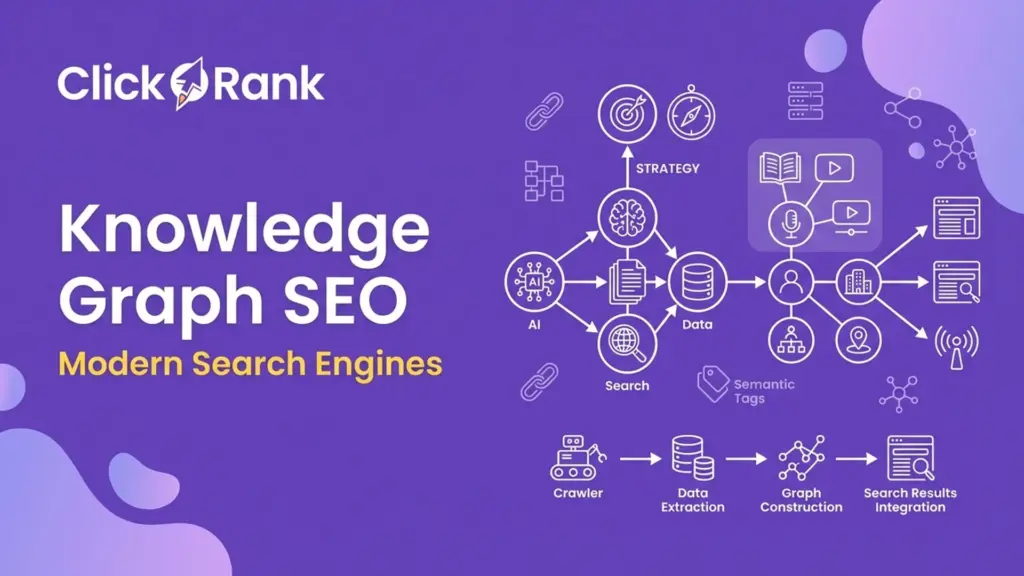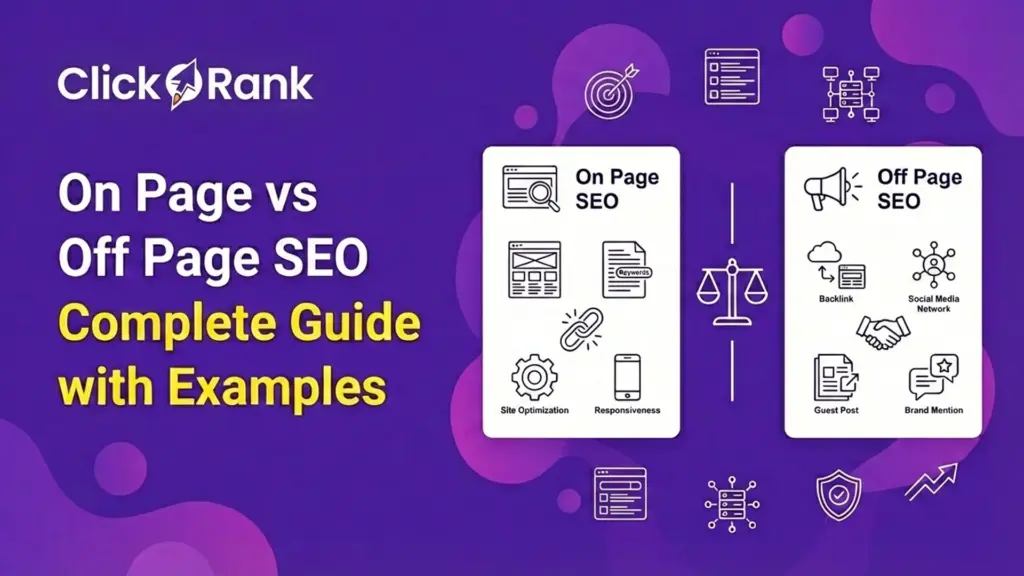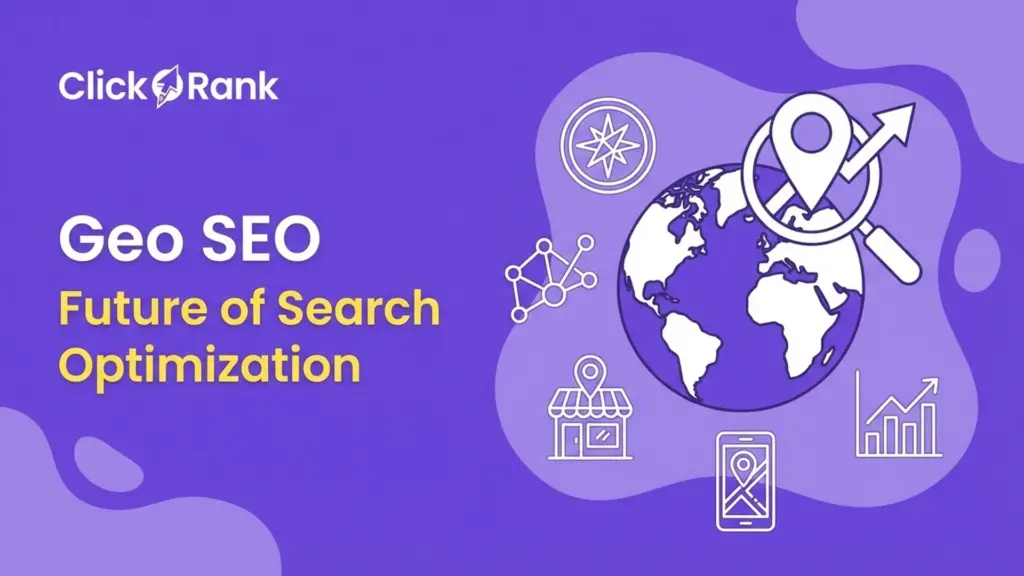What Is Advanced Indexing and How Does It Shape Advanced SEO?
Advanced indexing is a pivotal component of modern SEO, bridging the gap between content creation and visibility in search engines. Unlike traditional indexing, which primarily relies on basic crawling and page recognition, advanced indexing integrates sophisticated strategies to ensure every piece of content is efficiently crawled, understood, and prioritized by search engines. It directly influences how enterprise SEO campaigns perform, particularly for sites with large-scale structures or dynamic content. By understanding advanced indexing, businesses can strategically optimize their indexing strategy to increase search visibility, enhance ranking potential, and streamline the user experience.
What Are the Fundamentals of Advanced Indexing?
Advanced indexing focuses on ensuring that search engines understand, crawl, and categorize a website’s content efficiently. It goes beyond basic indexing by optimizing technical elements like structured data, canonical tags, XML sitemaps, and crawl budgets. The fundamentals include improving site architecture, internal linking, and using schema markup to clarify content meaning. Proper handling of duplicate content, mobile-first indexing, and page speed optimization are also key. The goal is to maximize visibility, ensure accurate representation in search results, and help search engines prioritize high-value pages for ranking.
How Does Search Engine Indexing Work at a Basic Level?
At its core, indexing involves search engines discovering pages, analyzing their content, and storing relevant information in their databases. This process begins with crawling, where bots scan the web, following links from one page to another. Once a page is crawled, it is evaluated for relevance, content quality, and structure before being stored in the index. Basic indexing works well for smaller websites but becomes inefficient for large-scale enterprise SEO operations due to crawl limitations, duplicate content issues, and dynamic content complexities.
What Makes Advanced Indexing Different From Traditional Indexing?
Advanced indexing goes beyond simply storing pages. It incorporates signals such as semantic relevance, structured data, mobile compatibility, and real-time content changes. This ensures search engines not only see the page but fully understand its context, hierarchy, and importance within the site’s ecosystem. Advanced indexing also leverages modern tools like IndexNow, API-based indexing, and log file analysis to accelerate discovery and prioritization of new or updated content.
Why Is Indexing a Core Component of Advanced SEO?
Indexing is foundational to advanced SEO because a page cannot rank if it is not indexed. Every optimization effort—on-page SEO, structured data, internal linking, or content updates—relies on proper indexing to impact rankings. Enterprise SEO strategies particularly benefit from advanced indexing by ensuring large volumes of pages, often numbering in the tens of thousands, are indexed accurately and efficiently, preventing loss of traffic or missed opportunities.
How Do Search Engine Crawlers Handle Advanced Indexing?
Search engine crawlers use sophisticated algorithms to discover, evaluate, and categorize web content. In advanced indexing, crawlers analyze signals such as structured data, canonical tags, and robots directives to determine which pages should be indexed and how they relate to each other. They prioritize content based on crawl budget, internal linking strength, and content freshness. Modern crawlers, enhanced by AI, also interpret JavaScript-rendered content and dynamic pages. Effective server response, sitemap management, and minimal crawl errors help ensure that crawlers index important pages efficiently while ignoring low-value or duplicate content.
What Are Crawl Budgets and How Do They Impact Indexing?
Crawl budgets define the number of pages a search engine bot will crawl on a website within a given timeframe. Efficient management of crawl budgets is essential for advanced indexing. If search engines waste resources on low-value or duplicate pages, important content may remain unindexed or experience delayed indexing. Optimizing site structure, using noindex tags strategically, and maintaining a clean sitemap help maximize crawl efficiency.
How Do Bots Prioritize Which Pages to Index First?
Bots prioritize pages based on authority, freshness, link equity, and relevance. High-authority pages with frequent updates and internal links are crawled more often. Understanding these prioritization factors allows SEO professionals to ensure critical content receives immediate attention, enhancing indexing speed and accuracy for high-impact pages.
What Role Do Sitemaps Play in Advanced Indexing?
Sitemaps act as blueprints, guiding bots through the site’s structure. XML sitemaps highlight essential pages, update frequency, and canonical URLs, improving indexing efficiency. Advanced indexing strategies often incorporate segmented sitemaps for large sites, separating content by type, priority, or update schedule, ensuring optimal crawling and indexing coverage.
What Technical Factors Influence Advanced Indexing?
Several technical elements directly affect advanced indexing. These include website architecture, internal linking, structured data, canonicalization, and crawl budget optimization. Mobile-friendliness, Core Web Vitals, and HTTPS security also play major roles in determining indexability. Additionally, server response times, robots.txt rules, and XML sitemap accuracy influence crawler efficiency. Implementing hreflang tags for multilingual sites and managing duplicate or thin content are critical. Proper JavaScript rendering and clean URL structures further ensure that search engines can interpret and prioritize your content correctly, enhancing overall indexation and SEO visibility.
How Does Site Architecture Affect Indexing Efficiency?
A well-structured site hierarchy allows search engines to discover content efficiently. Flat architectures with shallow link depth reduce crawl time and ensure important pages are indexed quickly. Conversely, deep, cluttered structures can hinder indexing, delay ranking, and waste crawl budget. Strategic internal linking enhances discoverability and ensures all pages contribute to the overall indexing strategy.
Why Is Page Speed Important for Better Indexing?
Page speed affects both user experience and search engine crawling. Slow-loading pages may be deprioritized by bots, limiting indexing frequency. Optimizing server response times, compressing assets, and leveraging caching ensures faster crawling, improves user metrics, and supports advanced indexing objectives.
How Do Canonical Tags Guide Advanced Indexing?
Canonical tags inform search engines about the preferred version of a page, preventing duplicate content issues and consolidating indexing signals. Proper canonicalization ensures that high-value pages receive priority in the index and prevents dilution of link equity across duplicate URLs.
What Is the Role of Robots.txt in Advanced Indexing?
Robots.txt files control which parts of a website are accessible to crawlers. Using this file strategically can prevent indexing of irrelevant or low-value pages, conserving crawl budget for critical content and enhancing the overall indexing strategy.
How Do HTTP Status Codes Affect Crawl and Indexing?
HTTP status codes signal the accessibility of pages. Correctly managing 404, 301, 302, and 410 responses is crucial to prevent indexing errors, preserve link equity, and maintain a clean, efficient index.
How Does Content Optimization Support Advanced Indexing?
Content optimization ensures that search engines can easily understand and categorize web pages. Using clear headings, keyword-rich titles, and structured data improves semantic relevance, helping crawlers connect content to user intent. Internal linking distributes crawl equity and clarifies page hierarchy. Fresh, unique, and multimedia-rich content signals quality, encouraging better indexation. Meta descriptions, alt text, and schema markup provide context that enhances visibility. By aligning on-page elements with search algorithms’ understanding of topic clusters, content optimization strengthens advanced indexing and helps high-priority pages achieve faster and more accurate inclusion in search results.
Why Does Structured Data Improve Indexing?
Structured data communicates page context directly to search engines, enabling enhanced indexing and rich search results. Markups like Schema.org enhance content understanding, improve semantic relevance, and support features like rich snippets, boosting visibility and click-through rates.
How Do Internal Links Strengthen Indexing Signals?
Internal linking distributes authority across pages and guides crawlers through the site. Strategic linking ensures priority content is indexed efficiently and improves the overall coherence of the site’s content network.
What Is the Role of Content Freshness in Indexing Priority?
Fresh content signals relevance. Pages that are updated frequently tend to be crawled more often, ensuring new information is indexed promptly. Maintaining a schedule of content audits and updates supports sustained indexing performance.
How Does Duplicate Content Impact Advanced Indexing?
Duplicate content can confuse crawlers, splitting indexing signals and harming search visibility. Advanced indexing strategies implement canonicalization, noindex tags, and content consolidation to mitigate duplication issues, preserving the authority and indexing priority of original pages.
What Advanced Indexing Strategies Improve Visibility?
Advanced strategies that enhance visibility include implementing structured data, optimizing internal linking, and refining crawl budget allocation. Using canonical tags prevents duplicate indexing, while XML sitemaps guide crawlers toward key pages. Content freshness updates and strong topical clusters boost authority signals. Additionally, adopting mobile-first and Core Web Vitals compliance ensures better crawlability. Leveraging log file analysis to monitor crawler behavior helps refine priorities. Combining these with AI-driven insights—like entity-based optimization—ensures that high-value content gets indexed efficiently and ranks prominently in competitive search results.
How Can Dynamic Rendering Help With JavaScript-Heavy Sites?
Dynamic rendering ensures that content generated by JavaScript is visible to search engines by pre-rendering pages for bots. This approach prevents indexing delays or errors, ensuring that all interactive or dynamic content is accurately crawled and ranked.
Why Does Mobile-First Indexing Change SEO Strategies?
Mobile-first indexing prioritizes mobile versions of pages for indexing. This shift necessitates responsive design, optimized mobile layouts, and fast-loading mobile pages to maintain indexing efficiency and search visibility.
What Is API-Based Indexing and When Should It Be Used?
API-based indexing allows websites to notify search engines of content changes directly. It’s particularly useful for large-scale enterprise SEO or ecommerce sites with frequent updates, ensuring near real-time indexing and faster ranking potential.
How Can IndexNow Speed Up the Indexing Process?
IndexNow is a protocol enabling instant notification of new or updated pages. By alerting search engines immediately, it drastically reduces the lag between content publication and indexing, improving visibility and engagement opportunities.
Why Is Real-Time Indexing Important for News and Ecommerce?
Real-time indexing ensures timely content reaches users quickly, which is critical for news outlets and ecommerce platforms with constantly changing inventories. Prompt indexing maintains competitiveness, relevance, and high click-through rates.
How Do AI and Machine Learning Shape Advanced Indexing?
AI and machine learning have transformed advanced indexing by enabling search engines to interpret content more intelligently. Algorithms like Google’s RankBrain and BERT analyze user intent, context, and semantic relationships, not just keywords. AI helps crawlers prioritize pages based on engagement, relevance, and authority signals. Machine learning also aids in predicting which content provides the best answers, refining indexing efficiency. For SEOs, AI tools enhance optimization through automated audits, log analysis, and content clustering—ensuring sites align with evolving algorithms that reward relevance, depth, and structured data accuracy.
How Do Algorithms Interpret Page Context for Indexing?
Machine learning enables search engines to interpret nuanced context beyond keywords. Algorithms analyze semantics, user intent, and content relationships, ensuring pages are indexed according to relevance rather than mere keyword presence.
Why Does Semantic Search Require Advanced Indexing?
Semantic search relies on understanding meaning and intent. Advanced indexing techniques, including structured data and NLP, allow search engines to connect concepts, interpret context, and rank content more accurately.
How Does NLP (Natural Language Processing) Improve Indexing Accuracy?
NLP helps search engines parse content more intelligently, recognizing synonyms, entities, and context. This results in improved indexing, more accurate search results, and better alignment with user intent.
How Do Indexing Issues Affect Advanced SEO Performance?
Indexing issues, such as crawl errors, duplicate content, or blocked resources, can severely limit a site’s visibility and ranking potential. When search engines fail to index critical pages, those pages can’t appear in search results, reducing traffic and conversions. Problems with canonicalization, noindex tags, or JavaScript rendering can lead to wasted crawl budgets or incomplete coverage. Over-indexing low-quality pages can also dilute authority. Regular technical audits, log analysis, and sitemap reviews are essential to identify and resolve these issues, ensuring that high-priority, optimized content is properly indexed and competitive in search.
Why Do Some Pages Get Crawled but Not Indexed?
Pages may be crawled but not indexed due to low quality, duplication, or blocked resources. Understanding these factors is key to optimizing indexing strategies and ensuring all valuable pages contribute to search visibility.
How Can Crawl Errors Block Advanced Indexing?
Crawl errors, such as server failures or misconfigured redirects, prevent search engines from accessing pages. Addressing errors promptly ensures uninterrupted indexing and avoids lost traffic.
What Is Index Bloat and How Can It Be Fixed?
Index bloat occurs when low-value or duplicate pages accumulate in the index, wasting crawl budget. Fixes include canonicalization, noindex tags, and content pruning to maintain a clean, high-quality index.
How Do Penalties Influence Indexing and Rankings?
Manual or algorithmic penalties can result in deindexing or ranking drops. Adhering to best practices, avoiding spammy techniques, and monitoring indexing ensures penalties are minimized and visibility remains intact.
How Can You Audit and Monitor Advanced Indexing?
Auditing advanced indexing involves analyzing how search engines crawl and store your site’s pages. Use tools like Google Search Console, Screaming Frog, and log file analysis to track indexed pages, crawl frequency, and errors. Review sitemaps, robots.txt, and canonical tags for consistency. Monitor crawl budget usage, identify orphan or duplicate pages, and validate structured data. Regular audits help detect indexation gaps and performance issues early. Tracking impressions, crawl stats, and coverage reports ensures that your most valuable pages remain properly indexed and visible, supporting stronger organic performance.
What Tools Help Track Index Coverage?
Tools like Google Search Console, Ahrefs, and Screaming Frog provide insights into which pages are indexed, identify crawl issues, and highlight opportunities for improvement.
How Can Google Search Console Be Used for Indexing Insights?
GSC allows monitoring of index coverage, page errors, and submission of sitemaps. It’s essential for identifying problems, optimizing crawl efficiency, and ensuring content is indexed properly.
Why Are Log File Analyses Useful for Indexing Audits?
Server log files reveal how search engine bots interact with a website, uncovering crawl patterns, bottlenecks, and unindexed pages, making it a powerful tool for advanced indexing optimization.
How Do Third-Party SEO Tools Assist in Indexing Analysis?
Third-party tools offer comprehensive audits, monitoring, and reporting. They identify missed indexing opportunities, track crawl efficiency, and provide actionable recommendations for enterprise SEO strategies.
What Are the Future Trends in Advanced Indexing?
The future of advanced indexing will center on AI-driven interpretation, entity-based search, and personalized indexing. Search engines will rely more on understanding user intent and semantic relationships than simple keywords. With the rise of voice search, mobile-first experiences, and visual content, structured data and multimodal indexing will become essential. Google’s continuous indexing updates will prioritize E-E-A-T signals and page experience metrics. Additionally, serverless architectures and Web 3.0 innovations will reshape how crawlers access and store data, making real-time, context-aware indexing the new standard for SEO success.
How Will AI-Driven Search Engines Change Indexing?
AI-driven engines will increasingly interpret context, intent, and content quality, making traditional keyword-based indexing less dominant. This shift will demand more sophisticated indexing strategies to maintain visibility.
Why Will Real-Time Indexing Become Standard?
As user demand for up-to-date information grows, real-time indexing will be essential. Immediate visibility of new content will define competitiveness in news, ecommerce, and dynamic content sectors.
How Could Web3 and Decentralized Search Affect Indexing?
Web3 and decentralized search platforms may alter indexing dynamics by distributing authority across networks. Advanced indexing strategies will need to adapt to new crawling mechanisms and decentralized content verification.
What Role Will Voice Search Play in Advanced Indexing?
Voice search emphasizes natural language queries, requiring indexed content to reflect conversational patterns and intent. Advanced indexing will increasingly integrate NLP and semantic analysis to support voice-driven search.
Advanced indexing is the backbone of successful enterprise SEO. By implementing the strategies discussed—ranging from structured data and canonicalization to dynamic rendering and AI-powered insights—websites can achieve faster, more accurate indexing and superior search visibility.
For a deeper dive into optimizing your website for advanced indexing and elevating your SEO game, visit clickrank.ai and start transforming your indexing strategy today.
What is the difference between crawling and indexing in SEO?
Crawling is the discovery of pages, while indexing is storing and understanding their content for search results.
How long does it take for new content to be indexed by search engines?
Typically, it can take from a few hours to several weeks, depending on site authority, crawl frequency, and content relevance.
Why are some of my website pages not indexed?
Common reasons include low-quality content, duplicate content, blocked resources, or crawl errors.
What tools can I use to check if a page is indexed?
Google Search Console, site: search queries, Ahrefs, and SEMrush are effective tools for checking index status.
Does submitting a sitemap guarantee faster indexing?
It improves the likelihood and speed of indexing but does not guarantee immediate results.
How does mobile-first indexing affect desktop websites?
Search engines prioritize mobile versions, so desktop-only content may receive reduced visibility if not optimized for mobile.
Can duplicate content prevent proper indexing?
Yes, it can confuse search engines, splitting ranking signals. Canonicalization and content consolidation help prevent this.
What is API-based indexing and who should use it?
API-based indexing notifies search engines directly of changes, ideal for large or frequently updated sites like ecommerce or news platforms.
How does IndexNow work compared to traditional indexing?
IndexNow instantly alerts search engines to content changes, reducing the lag between publication and indexing compared to standard crawling.
Why do high-authority websites get indexed faster?
Search engines prioritize authoritative sites for frequent crawling, ensuring their new content appears in the index quickly.


